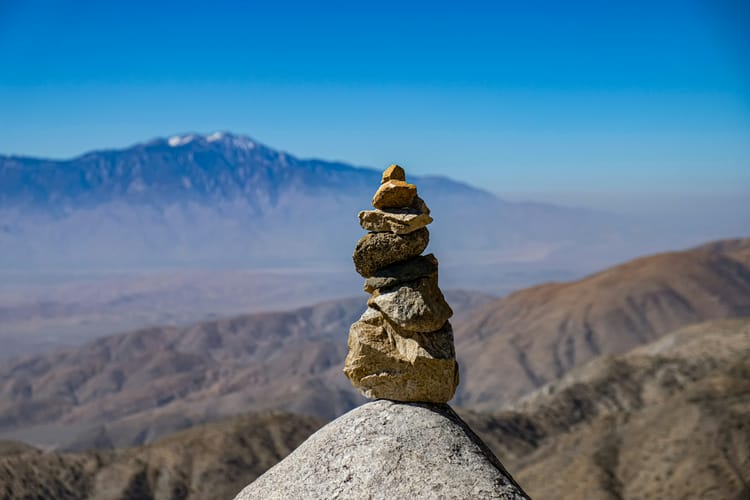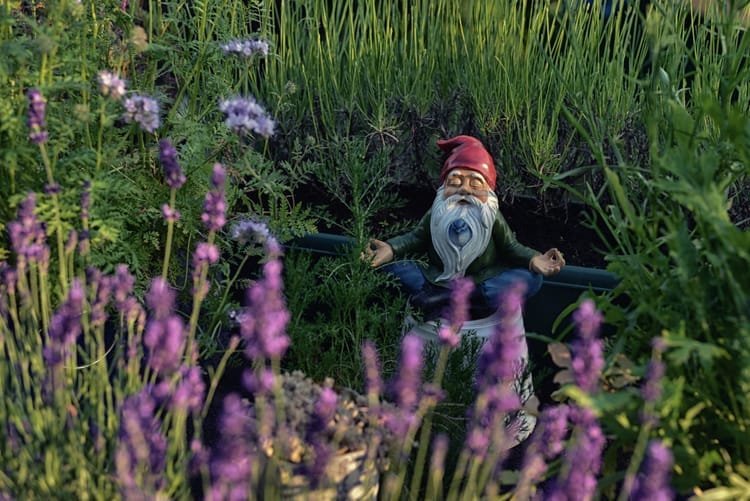Learning to ground

Yesterday, we celebrated my mom's 80th birthday. We had lunch in a restaurant in the mountains and it was a rather big affair, at least by our standards. Relatives from Venice, whom I hadn't seen in many years, came to join us for this special occasion, along with a few of my mom's longtime friends.
Lunch featured a fixed menu with multiple courses—the kind of meal that would have posed significant challenges for me in the past. For over twenty years, I either avoided events with abundant food or engaged in unhealthy eating behaviors and self-harm when attending. This meant missing out on interactions with friends, relatives and acquaintances. It led to me skipping weddings, Christmases, and many other occasions. It meant making up excuse after excuse, finding myself alone, feeling shame, being considered the odd one, and so on.
This was the first time I felt reasonably confident as we headed towards the restaurant. I could be there to celebrate my mom without it becoming a threat to my hard-won mental balance. I ate moderately, felt comfortable declining the cake and other foods I didn't want, and at the same time, I enjoyed a few dishes more to my liking. It was great to catch up with my relatives, and I was happy to see that my mom was enjoying herself.
Unfortunately, I didn't sleep well because of an intense upset stomach, and things didn't improve when I woke up. It could be that, even if I didn't eat much, the food was a bit heavier than what I'm used to. Or it could be just another one of my usual flare-ups. Stress might also be a contributing factor. It was a joyful event, but it also stirred up memories of similar events that were anything but joyful for me. I can't erase over two decades of emotional and food misery, no matter how well I'm doing now. It's essential not to dwell on it, but I have to take into account that there will be uncomfortable feelings and sensations. Memories of my past fears and sorrows may resurface, so I need to be kind to myself.
I'm sharing all of this as an introduction to today's topic, which is the importance of learning how to ground ourselves when we're feeling uneasy, stressed or overwhelmed. This morning, I just couldn't clear my headspace, so I went for a walk up on the hill, hoping that some forest bathing would do the trick.
So what is grounding and why do we need it? In short, grounding practices help us feel more centered, present, and connected to the world around us, and they can be especially useful during moments of intense anxiety or pressure. They allow us to respond intentionally to challenges rather than reacting impulsively to them. Nature can have a calming and grounding effect; it certainly does in my case. That's why I always try to spend a little time every day observing the natural world around me, even if it's just the small park near my place. On weekends, I can't wait to go hug a tree, sit by a river, listen to the birds and watch the squirrels.
Another exercise that helps me ground is to rely on sensory awareness: I focus on taking in the sounds and smells around me, then I focus on what I can see and what I can touch. If available to you, you can also focus on something you can taste. For instance, as I was walking through the forest, I still felt my mind racing a bit. So I started paying attention to the birds chirping, the resinous scent emanating from the pines, all the different shades of green, the tree bark under my hand. Another easy sensory awareness exercise I like to do is to use my thumbs to feel my other fingertips, one at the time. Rubbing my fingertips against each other in a circular motion, I close my eyes and instantly feel calmer. Equally easy is holding an object in your hand and paying attention to its texture, color, weight, and any other detail that stands out to you. All of these practices have the common goal of helping us stay in the "here and now", rather than letting the monkey brain take over.
Deep breathing can be very effective as well, and I'm not talking about complicated breathing techniques. It can be as simple as taking deep belly breathes, and letting the air out your mouth with a sigh for a few times. Deliberately taking a slow, deep breath, holding it, and then letting it out slowly activates the parasympathetic nervous system, and sighing is been proven to be great for stress relief. I also really like the three-part breath, which I find extremely calming and very easy to do, once you've practiced it a few times. The physiological sigh is very easy, calming and effective as well.
If I'm at home and have the time to practice, I have some grounding yoga routines I can turn to when I'm spiraling out of control. Alternatively, I can do a guided body scan or meditation (I've found some great ones on YouTube and the Insight Timer app).
It’s helpful to become familiar with these practices when we’re in a relaxed state, so that we're ready to use them when we find ourselves in a stressful situation or overwhelmed by anxiety or other uncomfortable emotions. The more we practice, the easier and more effective the grounding response will be when we need it.
How easy is it for you to ground yourself? Do you have any practice you'd like to share with us? If you have any comments or questions, leave them in the comment section; I'll be happy to read them. You can also email me or book a call to discuss the topic further. Also, remember to share this post with anyone who might find it useful.
PS A photo from the happy event with my mum and brother. I struggle with seeing myself in pics, but I've been making an effort lately. I asked myself, would you rather focus on how you look or on collecting memories?




Member discussion